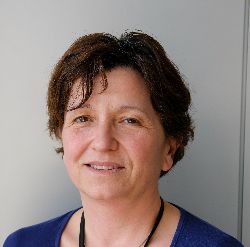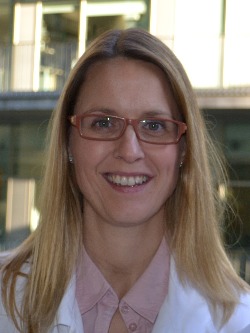
29/04/2021 - General information
The benchmark meeting in the field of immunotherapy cancer treatment was held once again, on April 9, in a hybrid format. This year, the presentations focused on the research and development of this type of treatment for various types of tumours, as well as molecular diagnostics. Understanding which factors make immunotherapy work in some cancer patients and not in others, the structure and genetics of tumours to help select the most appropriate treatment, is the current focus of research in this field. This was evident at the new edition of the Optimizing Immunotherapy, New Approaches, Biomarkers, Sequences and Combinations congress, held on 9 April in a hybrid format and organised by the Hospital del Mar Medical Research Institute (IMIM) and Hospital del Mar. The meeting brought together around twenty of the world's leading experts in research and clinical application of immunotherapy treatments to analyse the latest breakthroughs and the future of immunotherapy. It was backed by the SEOM, SOGUC and CIBERONC.
Més informació "The future of immunotherapy at the Optimizing Immunotherapy Congress"
22/04/2021 - General information
Dr. Anna Bigas, coordinator of the Stem cells and cancer Research Group of the Hospital del Mar Medical Research Institute (IMIM) and scientific director of the CIBER Oncology has been chosen one of the Top 100 Women Leaders in Spain. This is a ranking created by Mujeres & Cia in 2011, an online magazine of reference among professional women that aims to make female talent visible and build a society based on equality. On the afternoon of April 21, the Top 100 Gala was held, this year in hybrid format, which was attended by Nadia Calviño, Second Vice President of the Government, soprano Pilar Navarro and TV presenter Sonsoles Onega. At the event, the chosen ones were announced, including Dr. Anna Bigas in the category of Academics, researchers and thinkers. Of the 100 chosen, 50 are chosen by a jury, 40 by Mujeres & Cia and 10 by the public through voting.
Més informació "Anna Bigas, one of the Top 100 Women Leaders in Spain"
13/04/2021 - General information
The head of the Digestive Oncology section in the Medical Oncology Service at Hospital del Mar is taking on this new role in the ESMO Faculty until 2025. From now on, she will be part of the group of experts who collaborate with the organisation to fulfil its educational responsibilities. Dr. Clara Montagut is now a member of the ESMO Faculty, the teaching body of the European Society of Medical Oncology, specifically in the gastrointestinal, colon and rectal tumours group. The head of Digestive Oncology at Hospital del Mar and the clinical and translational research group laboratory for new therapies and biomarkers in colon and rectal cancer at the Hospital del Mar Medical Research Institute (IMIM), will form part of the group of experts from the organisation who offer advice and support to help the society fulfil its educational responsibilities.
09/02/2021 - General information
Dr. Bigas has joined as Deputy Director of Preclinical Research at the Josep Carreras Institute, maintaining her relationship with the Hospital del Mar Medical Research Institute (IMIM), where she leads the Stem Cells and Cancer group. The new responsibility that Dr. Bigas assumes will serve to enhance coordination between all groups in the institute that do basic and translational research, seeking synergies between them and optimizing their research, as well as to enhance the existing collaboration between the professionals of our institute and those of the IMIM. In the last ten years, as head of the Stem Cells and Cancer group, she has studied the molecular and physiological processes of stem cells in different tissues, in order to draw similarities with the appearance and progression of cancerous processes. In particular, her research focuses on the study of hematopoietic stem cells, responsible for the formation of blood cells, in order to understand the process of leukemia and develop strategies to fight against this disease.Currently, her research group is working on the identification of epigenetic and gene expression profiles, which allow discovering new therapeutic targets not yet exploited clinically.
20/01/2021 - General information
The Journal of Clinical Investigation has published a review authored by Michelle von Locquenghien, Catalina Rozalén, and Toni Celià-Terrassa, all members of the Cancer Stem Cells & Metastasis Dynamics Lab at the Hospital del Mar Medical Research Institute (IMIM). In the article, they analyse current knowledge on the role of interferons -cytokines (proteins) involved in regulating the function of immune system cells- in the mechanisms that allow tumour cells to develop treatment resistance. The authors explain how the relationship between tumour cells and the immune system evolves as the cancer progresses, causing these cells to acquire systems that enable them to resist attack. They point out that the principal mechanisms used to achieve this are related to interferon signalling. In this respect, they highlight new evidence supporting immunotherapy-mediated immunoediting and show how interferons can impact either treatment response or resistance. All these factors lead the authors to support its potential as a therapeutic strategy in cancer.
Més informació "The role of interferons in tumour cell resistance to immunotherapy"
16/12/2020 - Press release
T-cell acute lymphoblastic leukaemia (T-ALL) is a cancer of the blood that affects mainly children, but also less frequently adults. In adults, although the response to treatment might be initially positive, relapses are common and have a poor prognosis. A collaborative project between IRB Barcelona's Biomedical Genomics lab, headed by ICREA researcher Núria López-Bigas, Anna Bigas' group at the Hospital del Mar Medical Research Institute (IMIM-Hospital del Mar), and Josep Maria Ribera's lab at the Josep Carreras Leukaemia Research Institute (IJC) has discovered that the cells responsible for resistance to T-ALL treatment in adults are already present in the tumours before diagnosis.
25/11/2020 - Institutional news

The Hospital del Mar Medical Research Institute (IMIM) and the Josep Carreras Leukaemia Research Institute (IJC) have signed a collaboration agreement with the aim of jointly promoting scientific research, teaching and training personnel in the healthcare field, as well as pooling their efforts to efficiently manage public and/or private resources available for biomedical research activities in the field of haematology-oncology.
Més informació "Strategic alliance with the Josep Carreras Foundation for research into haematology"
30/11/2020 - General information
Dr. Dr. María Martínez, head of the neuro-oncology section of the Medical Oncology Service at Hospital del Mar and a researcher in the Cancer Molecular Therapy research group at the Hospital del Mar Medical Research Institute, will chair the Spanish Neuro-Oncology Research Group (Grupo Español de Investigación en Neurooncología; GEINO) for the next two years. Her appointment was confirmed on 27th November at the organisation's assembly, which was held virtually. Dr. Martínez explained that her objective at the head of GEINO is "To maintain and strengthen the execution of clinical trials in neuro-oncology, both for primary central nervous system tumours and brain metastases, and to continue down the same path as the previous chairmanship with regard to the most basic and translational researchers, as well as to build bridges and collaborate with other cooperative groups".
Més informació "Dr. María Martínez, new president of the Spanish Neuro-Oncology Research Group"
27/11/2020 - General information
Research involving doctors and researchers from Hospital del Mar and the Hospital del Mar Medical Research Institute, led by the INCLIVA Health Research Institute at Hospital Clínico in Valencia, directed by Dr. Pilar Eroles, Co-coordinator of the Breast Cancer Biology Research Group, has demonstrated, for the first time, that the under-expression of miR-33b is related to a poor prognosis in patients suffering HER2+, one of the most aggressive breast cancers and associated with a low survival rate.
29/10/2020 - Press release

The Hospital del Mar Medical Research Institute (IMIM), together with the INCLIVA Health Research Institute, from Hospital Clínic in Valencia, and the Vall d'Hebron Institute of Oncology, have obtained funding from the Spanish Association Against Cancer (AECC) for their project entitled Factors derived from the tumoral microenvironment in localised colon cancer: clinical impact and therapeutic implications. Dr. Clara Montagut, head of the Gastrointestinal Cancer Unit in the Medical Oncology Service at Hospital del Mar, coordinator of the Clinical and Translational Research Group on new therapies and biomarkers in colon and rectal cancer at the Hospital del Mar Medical Research Institute (IMIM) and a participant in the study, points out that "The goal of this research is to identify markers that will help us determine whether the cancer will re-emerge in a patient who has undergone colon cancer surgery. This is extremely important for people who have colon cancer, since at present we are unable to predict whether the tumour will reappear or not after surgery.
© Institut Hospital del Mar
d'Investigacions MèdiquesLegal Notice and Privacy Policy | Cookie Policy | Site Index | Accessibility | Find Us | Contact